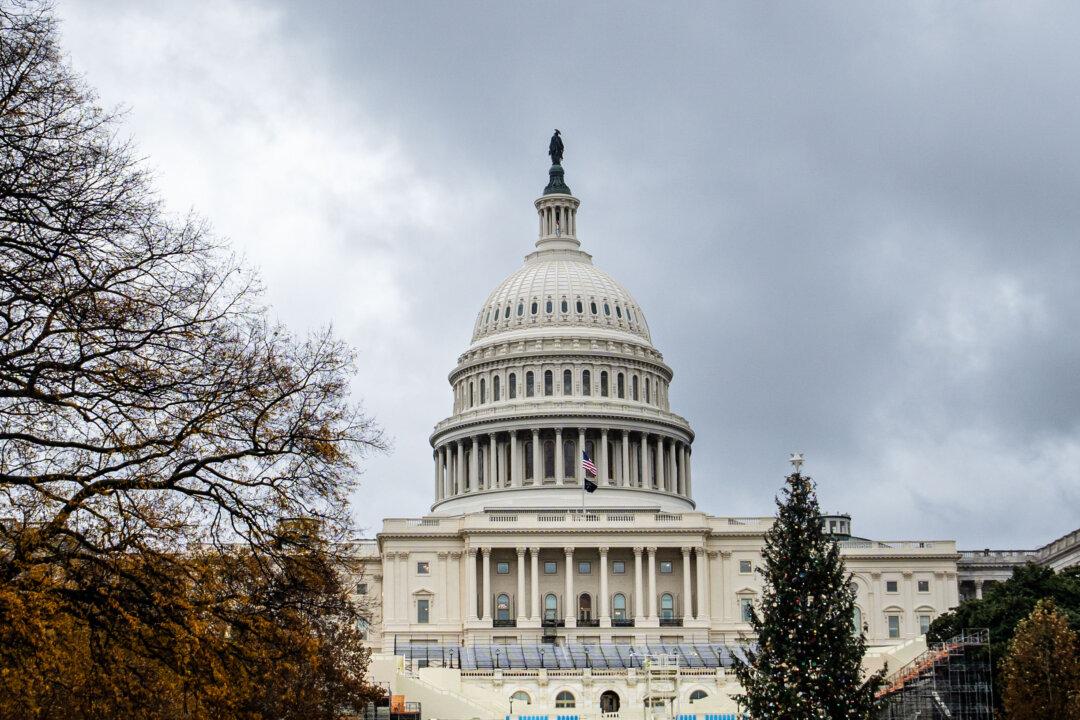The
United States must do more to understand how
China’s communist regime is leveraging economic coercion and statecraft against it, according to Rep. Ami Bera (D-Calif.).
“It’s extremely important that the United States administration, whether it’s a
Democratic or
Republican administration, understands how China uses economic coercion,” Bera said during a webinar hosted by the Center for a New American Security (
CNAS), a Washington-based think tank.
“What they’re doing really is direct coercion.”
Since the beginning of the
trade war between the United States and China in 2018, economic reprisals such as tariffs, sanctions, and investment restrictions have increasingly defined the Sino–American relationship.
Most recently, reports documented a massive
hoarding spree by the Chinese Communist Party (
CCP), through which the regime continues to stockpile precious resources such as
semiconductor chips and cotton. This was conducted apparently to insulate itself from the effects of U.S. trade controls.
Bera underscored the problem of ambiguity in U.S. economic and
deterrence strategy, saying
Congress and the
Biden administration need to better clarify the nation’s tools for conducting economic competition and its rules for deploying them.
“We should have some clarity in terms of the deterrent tools that are available,” Bera said, “and some of those tools are economic deterrent tools.”
That bill, if made law, would require the president to establish a task force responsible for developing and implementing a strategy to respond to the CCP’s economic coercion, and to monitor the associated costs and impacts of such coercion.
“The People’s Republic of China’s [PRC] heavy-handed and predatory economic policies harm our partners and undermine American interests well beyond the
Indo-Pacific region,” Wagner said in a
statement.
“Our efforts to respond to
PRC economic coercion must be strategic, measured, and proactive.”
Whether the United States can influence the Chinese regime without inflaming tensions, or even open lines of meaningful dialogue, however, remains an open question for Bera.
“We’re going to be competitive with China in the 21st century. That’s a given,” Bera said. “Competition is not a bad thing, [but] can we have competition without direct confrontation?
“We don’t have to guess the direction that
Xi Jinping wants to take China.”
To that end, Bera said there was some silver lining to Xi’s hard-line and at times provocative ruling style.
“I think that the heavy-handed approach that China sometimes takes actually is doing our work for us,” Bera said.
“I would have said three to four years ago [for example] that
Australia was taking a somewhat laissez-faire attitude towards China. That’s not the case today. They’re probably one of our strongest
allies in understanding how to counter what China is doing around the world and certainly in the Indo-Pacific.”
US Is Slower to Act Than China
Bera’s comments also helped contextualize a
report released by CNAS in December, titled “Containing Crisis: Strategic Concepts for Coercive Economic Statecraft.”
That report was based on scenario exercises carried out by CNAS that found that the United States was generally less willing than China to engage in very aggressive economic coercion, and that both nations’ governments still desired wide-ranging access to one another’s
markets.
“While both China and the United States may be willing to accept negative economic impacts to pursue geopolitical objectives, both also demonstrate a preference to broadly retain access to the other’s market, which may constrain the use of the most extreme forms of economic coercion,” the report reads.
The report also noted that the CCP is willing to use a much wider array of methods to coerce the United States and others economically, whereas the United States, generally limits itself to targeted
sanctions or
export controls.
Notably, the report found that U.S. economic
strategy aims overall at preserving the international status quo. Because of this, the United States tends to coordinate policy more slowly than China, as it seeks a balance between defending its principles and deescalating situations from outright conflict.
The report recommended that the United States pursue a persuasive rather than coercive strategy with regard to its economic toolset, and underscored the strategic importance of improving diplomatic relations with middle powers throughout
Asia and the Indo-Pacific.
Biden Administration Hopes for New Indo-Pacific Framework
Bera’s comments echoed remarks made by Kurt Campbell,
White House coordinator for the Indo-Pacific, during a
webinar hosted by the Carnegie Endowment for International Peace on Jan. 6.
Campbell’s remarks, in turn, were similar to the prognosis of the CNAS report. Campbell said the United States’ relationship with smaller nations throughout Asia and the Indo-Pacific, particularly in trade, would be central to any successes or failures it might have in directing the future of the region.
“We’ve got to make clear that not only are we deeply engaged diplomatically, militarily, comprehensively, strategically, [but] that we have an open, engaged, optimistic approach to commercial interactions [and] investment in the Indo-Pacific,” Campbell
said.
“The ramparts, the areas in which we are going to need to compete in the Indo-Pacific, are not necessarily just in military competition, but across arenas of technology.”
To that end, he said the nation would need to find a trade framework to replace the Comprehensive and Progressive Agreement for Trans-Pacific Partnership (
CPTPP), a 19-nation trade agreement that grew out of the Trans-Pacific Partnership (
TPP), which the Trump administration withdrew from in 2017.
Former President
Donald Trump spurned the TPP and
withdrew from the proposed deal due to criticism that it was bad for the American job market. Biden administration officials have said for months that they’re engaged in an effort to create a new, more
robust economic framework for the Indo-Pacific. Nothing has yet materialized of the effort, however.
In all, Campbell signaled that a new framework would be finalized, but also cautioned that real, meaningful competition would be the defining feature of Sino–American relations for decades to come.
“The general proposition of the Biden administration is that the dominant paradigm between the United States and China is increasingly going to be defined by competition,” he said.





